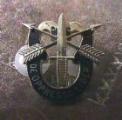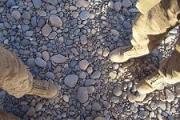I have been meaning to mention this for awhile. This morning's NYT reminded me.
Remember how many of the suicide attacks against American and Iraqi forces in Iraq were attributed to terrorists "wearing Iraqi military uniforms", implying that enemies were simply putting on military or police uniforms to gain access to conduct their attacks?
I did a piece on SMC (!!pNSFW!!) http://swedemeat.blogspot.com/2006/1...orm-story.html in 2006 expressing my skepticism about such representations.
I've since received confirmation of our suspicions, follow up investigations nearly always ID'ed the perp[s] as real members of the security forces.
The media have been regurgitating the same narrative in Afghanistan https://www.nytimes.com/2011/04/19/w...ghanistan.html:
It was the latest in a string of attacks targeting Afghan government and military officials in what the Taliban have called the beginning of their spring offensive. On Saturday, a suicide bomber killed five NATO service members in eastern Afghanistan A day earlier, a suicide bomber killed the police chief of Kandahar Province. In both attacks, the bombers were dressed in Afghan army or police uniforms.
The same motive for the media manipulation is in play. To acknowledge that enemies have infiltrated our only hope for a decent exit from the war (such as it is) would cast some doubt about the strategy we are hanging our hats upon.
This is far from our only problem in Afghanistan. Pak sanctuaries, Afghan gov incompetence (and corruption), challenges in getting enough warm bodies to join Afghan mil and police, and dwindling options to address all of these issues are certainly more serious obstacles.
But deluding ourselves is rarely a recipe for success in any endeavor.











Bookmarks